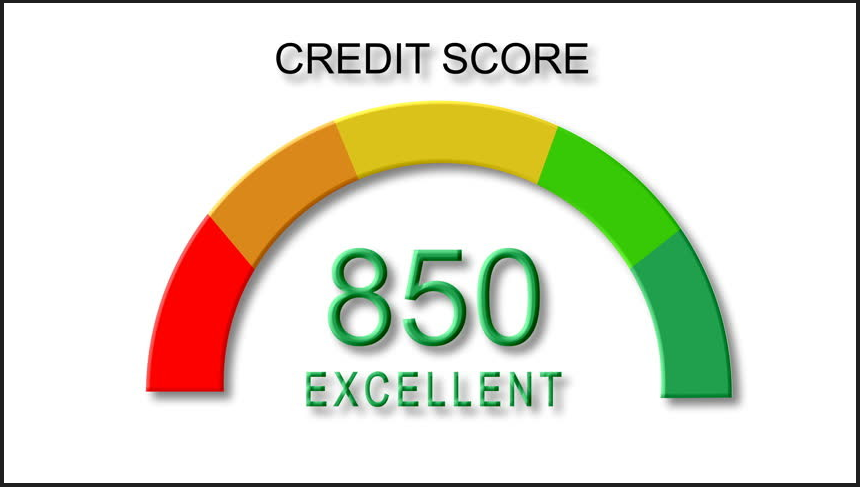Maintaining a top credit score can significantly impact your financial well-being and create new opportunities for borrowing and financial growth. Below are some ways in which an excellent credit score above 800 can be beneficial:
- Better Interest Rates: Individuals with outstanding credit scores often qualify for better interest rates on loans, including mortgages. Lower interest rates can lead to substantial savings over the long term, allowing you to manage debt more effectively.
- Increased Borrowing Power: A high credit score provides easier access to larger sums of money. Whether you’re considering a home purchase or need financing for a car, having a strong credit score ensures favorable terms and competitive interest rates.
- More Favorable Loan Terms: Lenders consider credit scores when determining loan terms. With an excellent credit score, you’re more likely to receive favorable conditions, such as lower down payments, extended repayment periods, or reduced monthly payments.
- Enhanced Financial Opportunities: A 800 credit score improves your chances of approval for various credit products, including mortgages, auto loans, and premium credit cards. It opens doors to better financial options.
- Efficient Loan Approvals: Individuals with excellent credit scores experience faster and smoother loan approvals compared to those with lower scores. Reduced hassle means quicker access to funds.
- Lower Insurance Premiums: Insurance companies view individuals with good credit scores as lower risk. Consequently, they may offer lower premiums on insurance policies.
- Simplified Rental Applications: When applying for an apartment rental, property managers and landlords conduct credit checks. A high credit score makes the process easier and increases your chances of approval.
- Improved Job Prospects: Some employers assess a candidate’s credit score, especially for roles related to security, finance, and management. A higher credit score enhances your employability.
Strategies to Boost Your Credit Score
Improving your credit score is a gradual process, akin to a marathon rather than a sprint. While there’s no magical overnight solution, several strategies can help raise your credit score over time. Let’s explore them:
- Always Make Timely Payments:
• Paying bills and credit card balances on time is crucial for maintaining a good credit score.
• Late payments can significantly harm your credit, as they remain on your credit report for up to seven years.
• Consider setting up automatic payments or reminders to ensure timely payments. - Increase Your Credit Limit (with Caution):
• Raising your credit limit can improve your credit utilization ratio (the percentage of available credit you’re using).
• However, be cautious not to increase your spending after getting a higher limit.
• Note that requesting a credit limit increase may result in a temporary credit score dip due to a hard inquiry. - Limit New Credit Applications:
• Each credit application triggers a hard inquiry, which can slightly lower your score.
• Minimize new credit applications to avoid unnecessary hits to your credit.
• Focus on quality over quantity when seeking new credit. - Monitor Your Credit Report Regularly:
• Make it a habit to check your credit score and review your credit file periodically.
• Detect errors, inaccuracies, or signs of fraudulent activity promptly.
• Dispute any discrepancies with the credit bureau to maintain an accurate credit history. - Pay Off High-Interest Debt:
• Prioritize paying down high-interest debt (such as credit card balances).
• Lowering your debt amount reduces your credit utilization ratio and demonstrates responsible financial management.
• Create a repayment plan and allocate a budget to tackle outstanding balances. - Keep Old Credit Accounts Open:
• The length of your credit history matters.
• Closing old credit accounts shortens your credit history, potentially impacting your score.
• Keep existing accounts open and use them responsibly to maintain a longer credit history. - Diversify Your Credit Mix:
• Lenders appreciate a mix of credit types (revolving and installment).
• Manage both credit cards (revolving credit) and loans (installment credit) to demonstrate versatility.
• Responsible handling of different credit types reflects positively on your creditworthiness. - Patience Is Key:
• Remember that improving your credit score takes time.
• Stick to a consistent credit-building strategy and be patient.
• Over time, your efforts will yield positive results.
By following these strategies, you’ll gradually enhance your creditworthiness and pave the way for better financial opportunities.
> 5 Steps to get a perfect credit: How to get a perfect credit score.
Mission: Help 1 person apply the information that will make them 1% better.
If you know someone that can benefit from this information…
Share it using one the buttons below:
The financial information provided on this page is for educational purposes only. I do not offer advisory or brokerage services, nor do I recommend or advise investors to buy or sell particular stocks, securities or other investments. You are responsible for all decisions you make, or any actions taken based on this content. Some of the links in this blog are affiliate links. If you make a purchase through these links, I may earn a small commission at no extra cost to you. This helps support the channel and encourages me to keep making content like this. Your support is very much appreciated. Thanks for reading and watching.


